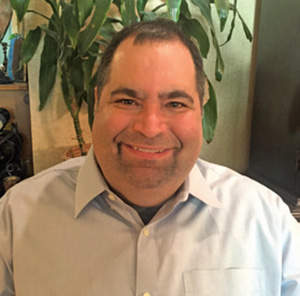
Jewish boys don’t play football—except when they do. Greg Joseph played football and soccer at the Donna Klein Jewish Academy, a yeshiva in Boca Raton, Florida. He continued his career at Florida Atlantic University, and after college Joseph tried out with the Miami Dolphins. Joseph did not make the team—but he did not give up. This year his hard work paid off when he was signed by the Cleveland Browns and became the first individual who played football for his yeshiva high school to make an NFL roster. The night after his first game a Chabad rabbi showed up at his apartment in Cleveland and presented him with a mezuzah.
It was a lovely story, completely in contrast to the story of another Jewish boy who played football—but his story had an entirely different ending. It ended with me representing him in a Brooklyn courtroom last month. My client’s story ended with broken ribs and back and permanent injury. I helped him secure a judgment and verdict of $750,000 after a finding of permanent and progressive disability, but one that I suspect his family would gladly trade for the health of the now 17-year-old boy.
There was no Chabad representative in the hospital or the courtroom. The boy was a 14-year-old freshman when he was tackled in a scrimmage. It was totally routine. The injury he sustained was a fracture to his rib and his spine.
The child was taken to a hospital. His treatment was also completely routine. X-rays. Pain killers. Physical therapy. CT scans. MRIs. Three years later he is still undergoing physical therapy. The boy is long, lanky, thick, with dark hair and eyes. He looks completely ordinary, except he is not.
At 17 his body is shot. He is not allowed to participate in gym, and he does not realize it yet, although I explained in a Brooklyn courtroom that his injuries are “permanent and progressive,” but it is just going to get worse. I am not sure that his Russian immigrant parents understood what I meant. I am pretty sure that the boy did not. But the bottom line is that the routine tackle changed that boy’s life forever.
In the end, this is not a sad tale. At least not completely. He will have a permanent ache in his back. He may feel soreness from time to time. But the boy’s brain is intact. And now, thanks to his judgment, he will have a little financial security as he figures out what to do with his life.
My client’s tale reminds me of my own. As a child, and still today, I loved, and love, sports. This is not an anti-sports article. I had some instincts. I was big. I had a high school coach who tried to convince me to play football. He told me I could be “a beast.” He promised he could get me a scholarship. My mother refused to sign off. She would not risk injury for her son.
In the end, I went to college in a prestigious program and a much smaller scholarship. My mother had played the Jewish mother card: You can be anything you want to be—but not that. Not because you can’t—but because knowing what we know now, why would you want to?
I don’t trust that my high school self would have known better. If I had the chance at glory, and my mother was not in the way, I may have gone for it. But she was much more interested in the Jewish value of preserving the body. Instead of playing on the football field I became the lead football broadcaster on the radio station that broadcasted the high school football games. From there I went to Syracuse University, the premiere communications school in the nation, where I developed my skills communicating through broadcast and print. Eventually I found my way into law school, and for more than 20 years I represented those who may not have been so fortunate.
I am sad that my client got hurt. I could easily have been him in a different situation. I am pleased I was able to help, so at least he will get some compensation as his injuries progress through his lifetime. I did not get a Chabad rabbi offering me a mezuzah at my apartment. Almost no one does. We are told we can grow up to be anything we want to be. We can. But sometimes we can’t. Sometimes it is best not to play the odds. Unless you want me representing you, seeking a $750,000 verdict that you would be happy to trade back for your health.
By Stephen Loeb
Stephen R. Loeb heads the Law Office of Stephen R. Loeb, a civil practice in New Jersey and New York. He can be reached at sloeb@loeblaw.com.










